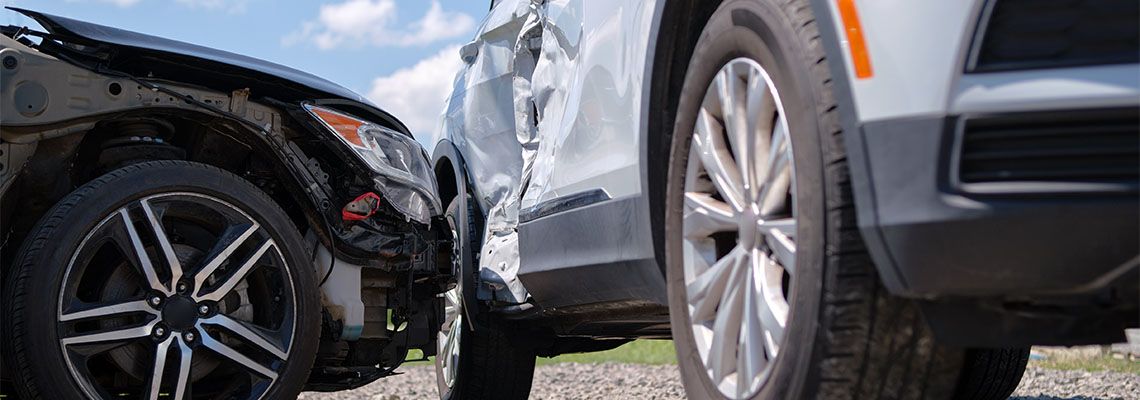When a collision with a commercial truck turns life upside down, the shock doesn’t fade quickly. Injuries can be severe, medical bills pile up fast, and work may suddenly feel out of reach.

When Is an Auto Accident Considered a Catastrophic Injury Case?
Auto accidents can cause a wide range of injuries, but some are so serious that they permanently alter a person’s life. These catastrophic injury cases often involve long-term medical treatment, loss of independence, and overwhelming financial burdens. Identifying when an injury is considered catastrophic is essential to pursuing the right legal options.
At SJP Sifers Jensen Palmer, we represent victims of catastrophic injury with skill and determination. We serve clients throughout Kansas City and Springfield in Missouri, as well as the Kansas City Metropolitan Area in Kansas. If you or a loved one has suffered a catastrophic injury in an auto accident, we encourage you to contact us today so we can begin protecting your future.
What Defines a Catastrophic Injury in Auto Accidents?
A catastrophic injury is one that causes permanent, life-altering harm and prevents the victim from living as they once did. These injuries typically involve significant medical care, long-term disability, and reduced quality of life.
Courts and insurance companies often distinguish catastrophic injury cases from less severe claims because of the scope of the damages involved. This distinction matters when pursuing compensation, as the stakes are much higher than in a typical personal injury claim.
Because classification impacts both the legal process and the damages available, it's important to understand the types of injuries that commonly fall into this category.
Common Types of Catastrophic Injuries Caused by Auto Accidents
Due to their severity and impact, some injuries are more likely than others to be considered catastrophic. These injuries often result in permanent physical or cognitive changes.
Traumatic brain injuries: Traumatic brain injuries are among the most devastating outcomes of auto accidents. They can cause memory loss, difficulty concentrating, mood changes, and long-term cognitive impairment. Victims often face years of rehabilitation and may never fully regain their prior level of independence.
Spinal cord damage: Spinal cord injuries can lead to partial or complete paralysis, significantly limiting mobility and independence. Even with advanced medical care, the effects are usually permanent and require major adjustments to daily living. Many victims need wheelchairs, adaptive equipment, and long-term personal care.
Severe burns or amputations: Severe burns and amputations cause permanent disfigurement and lasting physical challenges. Burn victims may undergo multiple painful surgeries and skin grafts, while amputees often face prosthetic use and ongoing therapy. Both types of injuries also bring emotional trauma due to the visible and permanent changes to the body.
Multiple fractures or organ damage: Multiple fractures or organ damage require extensive surgeries and lengthy recovery periods. In some cases, victims may experience lasting internal issues that affect overall health. The road to recovery can involve multiple hospitalizations and ongoing rehabilitation, leaving families under tremendous financial strain.
Each of these injuries can reshape every aspect of daily life, which is why they’re more likely to be recognized as catastrophic under the law. This also explains why the circumstances of an accident matter when determining case classification.
Factors That Elevate an Auto Accident to a Catastrophic Injury Case
Not every serious injury is considered catastrophic. For an auto accident to rise to this level, certain factors must be present that demonstrate lasting consequences.
Permanence of injury: The permanence of an injury is one of the strongest indicators that a case may be catastrophic. If a condition will last for life or result in permanent limitations, the law recognizes the far-reaching impact on the victim’s ability to function. This permanence can increase compensation to account for long-term medical costs and quality of life changes.
Impact on employment: The inability to return to one’s job or profession after an accident shows the devastating toll of catastrophic injury. In some cases, victims must change careers or stop working altogether because of their limitations. This loss of earning capacity significantly affects both the victim and their family’s financial security.
Need for ongoing care: A catastrophic injury often requires long-term or lifelong medical treatment and assistance. This may include repeated surgeries, physical therapy, and the use of assistive devices such as wheelchairs or mobility aids. The need for continuous care dramatically increases the financial burden of the injury.
Psychological effects: The psychological impact of catastrophic injury can be just as damaging as the physical effects. Depression, anxiety, and post-traumatic stress often develop after life-changing accidents. These conditions add another layer of hardship, requiring counseling, medication, and additional support over time.
When these factors exist, they significantly change how the claim is handled. This leads directly to the financial realities victims face after such devastating events.
Medical and Financial Consequences of Catastrophic Injury Cases
The costs associated with catastrophic injury extend far beyond initial hospital bills. Victims may need surgeries, adaptive equipment, home modifications, and lifelong therapy.
Families also face financial strain due to lost income, as many victims are unable to continue working in their chosen professions. In some cases, the injury prevents any kind of employment.
Because the financial impact is long-term and severe, damages in catastrophic injury cases are often much greater than in other personal injury claims. This naturally sets them apart in legal proceedings.
How Catastrophic Injury Cases Differ From Standard Auto Accident Claims
Catastrophic injury cases differ in their challenging nature and scope compared to standard injury claims. The documentation, evidence, and financial stakes are all heightened.
Insurance companies often dispute the extent of damages, making negotiations more challenging. Proving lifelong consequences requires extensive expert testimony and reports.
These differences mean victims must prepare for a more complicated process. The ability to connect injuries directly to the auto accident is one of the most important steps.
Proving That an Auto Accident Caused a Catastrophic Injury
Establishing that a catastrophic injury stems directly from an auto accident requires thorough evidence. This often involves testimony from medical professionals and accident reconstruction experts.
Key forms of proof may include medical records, imaging studies, and evaluations from vocational experts. Life care planners may also testify about long-term treatment needs and costs.
Our attorney, Tim L. Sifers, knows from experience that effectively presenting this evidence can make a significant difference in whether a case is classified appropriately. Timing also plays a critical role in determining whether a case is catastrophic.
Time Limits and Legal Standards in Catastrophic Injury Cases
Catastrophic injury cases are still bound by statutes of limitations, meaning victims have a limited window to take legal action. Waiting too long can bar recovery, no matter how serious the injury is.
The legal standards for proving these cases also emphasize the long-term effects of the injury. Detailed records and timely filings help preserve a victim’s right to pursue compensation.
Recognizing these requirements early allows victims to act quickly and protect their future. This leads naturally to the key points that victims and their families should keep in mind.
Contact a Skilled Attorney Today
At SJP Sifers Jensen Palmer, we know how devastating a catastrophic injury from an auto accident can be. Our firm is committed to fighting for the resources you need to secure long-term care, financial stability, and peace of mind.
We proudly serve clients throughout Kansas City and Springfield in Missouri, the Kansas City Metropolitan Area in Kansas, and surrounding communities. If you or a loved one has suffered a catastrophic injury, contact us today so we can help you manage the challenges ahead with confidence and clarity.
RECENT POSTS
Few situations feel more frustrating than filing a property damage claim in good faith, only to receive a denial letter. After paying premiums for years, many policyholders expect their insurance company to step in when damage occurs. Instead, they’re often met with confusing explanations, partial denials, or outright refusals.



